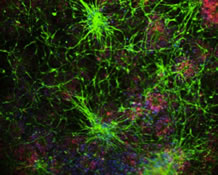Columbia University
Irving Medical Center
Neurological Institute
710 West 168th Street, 3rd floor
(212) 305-1818
About Us
Taub Faculty
Joseph H. Lee, DrPH, studies genetic epidemiology of Alzheimer's Disease (AD) and other age-related diseases in several unique high-risk populations in different parts of the world. To this end, he has four areas of research.
Dr. Lee and colleagues are studying families that have at least one family member who carry a mutation in the PSEN1 gene that contributes to AD risk. In these families, we observe a wide range of phenotypes (e.g., delayed age at onset of AD). One of the goals of this study is to identify protective genetic and environmental factors that allow family members to escape AD into late ages. To identify protective factors, he applies genomic and transcriptomic approaches. Once genetic variants are identified, he and his collaborators examine functional relevance of those variants by examining reprogrammed cells.
Dr. Lee and colleagues are examining adults with Down syndrome (DS) to better understand the natural history of Alzheimer disease. Adults with DS are at high risk of developing AD due to having 3 copies of the APP gene. He and his colleagues examine multiomic (genomic, transcriptomic, proteomic, and metabolomics), imaging (MRI and PET), and clinical phenotypes to better understand AD disease pathways.
He and colleagues are conducting a multi-site longitudinal study to determine why some individuals live to exceptionally old age and remain healthy. To this end, this study examines multiple layers of omic data including genomic, epigenomic, transcriptomic, proteomic, and metabolomic data.
He and colleagues are studying an isolated inbred American-Indian cohort in Venezuela to examine the role of genetic and environmental factors on age related traits. In addition, he collaborates with colleagues in Kazakhstan to understand whether high levels of exposures to environmental pollutants affect the risk of age related diseases including AD, cardiovascular disease and cancer. (Modified 2020.11.04)


